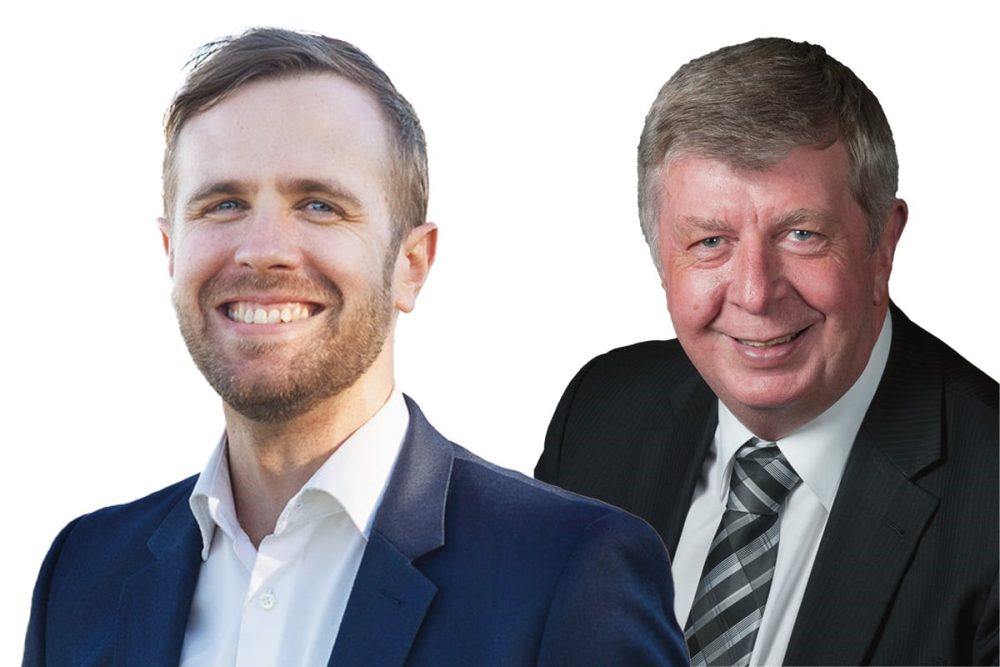
A heated war of words has broken out over whether Maori names should be given to numerous public places in the local community as well as bus stations that are part of the Eastern Busway project.
As the Times recently reported, 19 public places in east Auckland will receive Māori names as part of a commitment for te reo to be “seen, heard, spoken, and learnt”.
A majority of Howick Local Board members backed a resolution at their March business meeting endorsing the Auckland Council initiative, named Te Kete Rukuruku.
The board will invite mana whenua to provide Māori names and narratives for 15 local parks and the four libraries in Botany, Highland Park, Howick, and Pakuranga.
Three reserves are set to have sole Māori names.
Board chairperson Damian Light said at the time the programme’s outcomes include the restoration of mana and mauri (life force) to the area and the traditional use and importance of the land to mana whenua, Light says.
“Te reo Māori has been recognised as a taonga (treasure) and official language, leading to a revitalisation of its use and understanding.
“Opportunities like this allow local iwi to protect and return local names and history which may have been lost.
“This then enables our communities to learn about local Māori history, language and culture.”
But not every local community leader backs the move.
Howick ward councillor Maurice Williamson strongly opposes it, describing it as “virtue signalling” that’s “just sticking it up the nostrils of the voters out here for no reason and it doesn’t benefit anybody”.
He also opposes Auckland Transport (AT) being gifted Māori names by local mana whenua Ngāi Tai ki Tāmaki and Ngaati Whanaunga for new bus stations and structures being built for the Eastern Busway.
The four new stations will be called Pakūranga in the town centre, Te Taha Wai near to Edgewater College and Shopping Centre, Koata by Riverhills Park, and Pōhatu in Burswood.
Rā Hihi (sun’s rays) will be the name of the Reeves Road Flyover in Pakūranga.
Taupaepae (to meet or escort your visitors) will be the name of the bridge joining Tī Rākau Drive and Burswood.
Williamson said the view he hears from locals is the bus stop at Edgewater Shopping Centre should be called Edgewater and the bus stop at Burswood should be called Burswood.
“I’ve asked people if they know what the Māori name means and no one does.”
He pointed to Census data which shows just 1 per cent of residents in the Pakuranga electorate say they speak te reo, while 1.3 per cent in Botany say they do.
Given those figures he doesn’t know why AT plans to have the Māori words larger than the English words on tag-on and tag-off terminals at bus stops, he said.
“Where there are parts of the country where there will be big Māori populations I’m okay with them saying, ‘I’d like to have some dual names’ … This gets to be what I think is virtue signaling.
“‘Let’s have 1 per cent of the population and let’s put big signage up in a language the rest of us cannot read’, and I don’t get what that’s all about.”
Now Light is hitting back at Williamson’s public comments, and particularly his criticism of the board’s support for the Te Kete Rukuruku initiative, which the Times reported in late July.
He says he’s “extremely disappointed” by Williamson’s comments “in response to the restoration of te reo Māori history and names to our local area”.
“The demographic information he’s trying to weaponise is out of date and irrelevant.
“Te reo Māori is a legally recognised taonga (treasure) and an official language.
“We’re fortunate to have an incredibly diverse population in Tāmaki Makaurau Auckland, which should be welcomed and celebrated, not used for political posturing.
“It challenges us to consider how we make our city more inclusive and responsive, while ensuring we uphold Te Tiriti o Waitangi (Treaty of Waitangi).
“Far from virtue signalling, the act of restoring the history of local iwi to our public places is incredibly meaningful.”
Light says Williamson’s “unprovoked attack” on the board’s decision-making authority “speaks to his ignorance and disregard for the governance structure that exists in this city, despite being a Minister in the Government that created the Super-City”.
“He’s never raised any of these concerns with me or the Howick Local Board, instead using a public meeting (a recent Howick Ratepayers and Residents Association annual general meeting at which Williamson spoke) and the media to grandstand on issues he clearly doesn’t understand.
“In fact, Williamson hasn’t bothered to attend any of the public consultation events in our area since he was elected.
“In the meantime, he voted to remove 30 per cent of rubbish bins, close our early childhood centre, and reduce funding to the local boards.
“Perhaps if he spent more time listening to the community he’s meant to represent he would have a better understanding of who they are and what they want.”
The Howick Local Board has been listening to residents who said they want to learn more about local history, Light says.
“We already fund telling local settler and Fencible history, so we proposed incorporating Māori culture, language, art and stories into the design of public spaces when we consulted on our strategic Local Board Plan in 2020 and again in 2023.
“Despite this, we did debate further consultation on the use of te reo Māori for our parks and libraries.
“However, there was a significant cost associated with this (approximately $10,000) for a project with an allocated budget of $6,000.
“After years of deliberation and discussion, we’re moving forward, inviting iwi to consider names for 15 of our 266 parks and our four local libraries.
“Together with the announcement about the gifted names for the Eastern Busway, we’re pleased to see opportunities for local iwi to return local names and history which may have been lost.”








